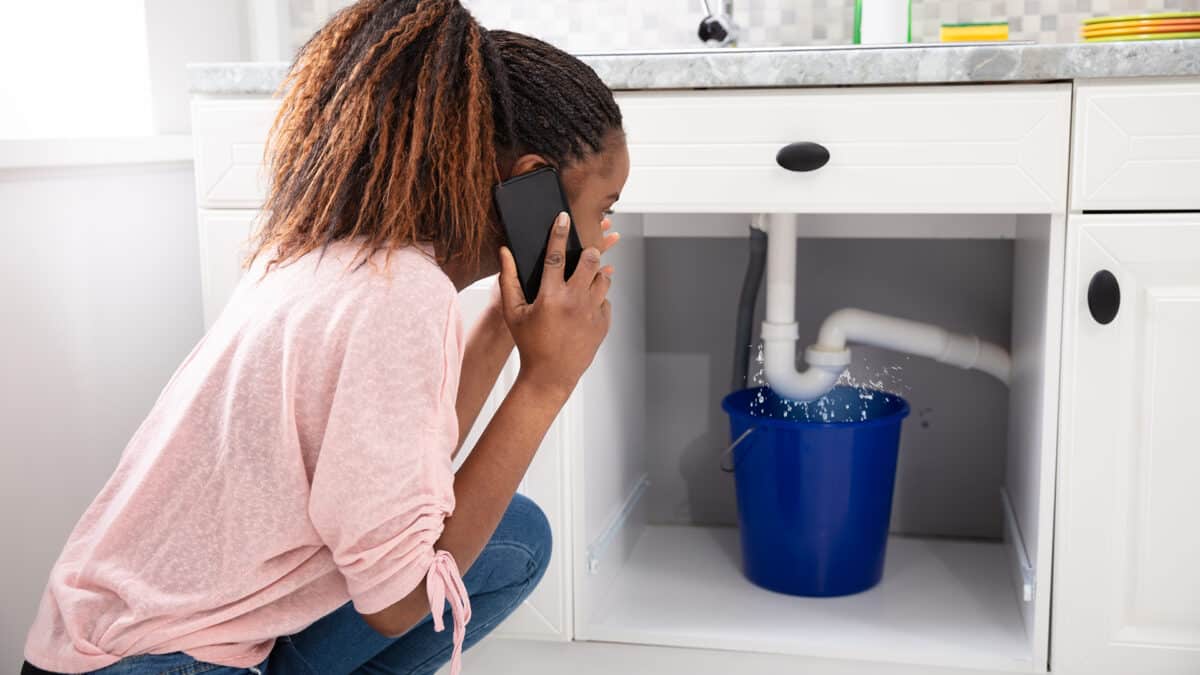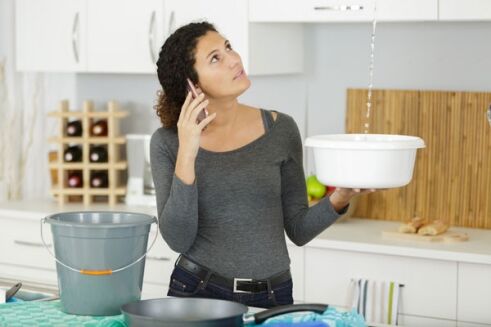Fast Tips for Plumbing Emergencies: Actions to Follow Until Support Arrives
Fast Tips for Plumbing Emergencies: Actions to Follow Until Support Arrives
Blog Article
We've uncovered this post about What to Do While Waiting for an Emergency Plumber below on the net and believe it made good sense to share it with you on this site.

Plumbing emergencies can strike at any moment, triggering tension and potential damage to your home. Whether it's a burst pipe, a clogged drain, or a leaky tap, understanding exactly how to handle the situation till a specialist plumbing professional gets here can conserve you from additional issues. This short article provides necessary emergency situation plumbing tips to aid you minimize damages and gain back control during a plumbing crisis.
Turn Off the Water Supply
The very first step in any kind of pipes emergency is to shut off the water supply. For local concerns, such as a leaking faucet or toilet, switch off the shutoff near the fixture. In the case of a significant leakage or burst pipe, situate your home's primary water shut-off valve and turn it off quickly. Knowing the location of these shutoffs ahead of time can conserve useful time during an emergency.
Shut Off Your Water Heater
In particular emergency situations, such as a ruptured pipe, it's a good idea to shut off your hot water heater. This protects against getting too hot or damage to the unit when water stops moving. Shut off the power supply to the water heater (electric or gas) and allow it cool off to prevent potential hazards.
Momentarily Quit a Burst Pipe
A ruptured pipe can lead to substantial water damages in minutes. To mitigate the concern:
Call an expert plumbing professional right away to deal with the trouble permanently.
Have an Emergency Pipes Kit
Prepare a standard plumbing emergency situation set to take care of minor problems efficiently. Your package ought to consist of:
Having these devices on hand can make a considerable distinction in your ability to handle emergency situations.
Unclog Drains Safely.
A clogged up drain can be an aggravating and untidy concern. Here's exactly how to tackle it:.
If these approaches don't work, prevent utilizing too much pressure, as it may intensify the clog.
Take Care Of Overflowing Toilets.
An overflowing bathroom can trigger prompt chaos. Here's what you ought to do:.
Address Tiny Leakages with Momentary Repairs.
Little leaks can rapidly become significant troubles if left uncontrolled. Make use of these short-lived repairs up until expert help arrives:.
While these fixes aren't irreversible, they can assist reduce water loss and damages.
Take Care Of Frozen Water Lines Thoroughly.
In cooler environments, frozen pipelines are a typical emergency situation. If you presume a frozen pipe:.
Know When to Call a Professional.
While quick fixes can aid temporarily, particular plumbing concerns need immediate expert focus. Call a plumbing if:.
Quickly speaking to a professional makes sure the problem is resolved properly and prevents additional issues.
Prevent More Damage.
Taking fast action to lessen damage can conserve you money and time over time. Here's exactly how:.
Final thought.
Pipes emergencies can be frustrating, however with the best understanding and devices, you can manage the circumstance effectively up until assistance gets here. By shutting off the water, dealing with small leakages, and making use of short-term fixes, you can lessen damage and maintain your home safe. Remember, these ideas are temporary services; constantly consult a certified plumbing technician to take care of the root cause of the issue. Preparation and quick thinking are your finest allies in any kind of pipes emergency.
Expert Tips for Emergency Plumbing Repairs
Plumbing emergencies can be incredibly stressful and inconvenient. Whether it’s a burst pipe, a clogged drain, or a leaky faucet, these common plumbing emergencies need immediate attention to prevent further damage to your home. But before you panic, it’s important to understand the basics of plumbing repairs and the steps you can take to address these emergencies. In this article, we will share some expert tips to help you navigate through these situations and minimize potential water damage.
Identifying Common Plumbing Emergencies
Leaky pipes and faucets Clogged drains and toilets Burst pipes Low water pressure Water heater problems Essential Tools for Plumbing Repairs
Plunger: Useful for unclogging toilets and drains Adjustable wrench: Needed for tightening or loosening nuts and bolts Pipe wrench: Ideal for gripping and turning pipes Tape measure: Necessary for accurate pipe measurements Plumber’s tape: Helps create watertight seals Understanding Emergency Plumbing Services
Emergency plumbing services are designed to provide immediate assistance for unexpected plumbing issues that can cause significant damage to your home, business, or health. These services are typically available 24/7 and are staffed by experienced plumbers who can quickly diagnose and repair a wide range of plumbing problems.
When a plumbing emergency strikes, time is of the essence. Whether it’s a burst pipe flooding your basement or a gas leak posing a serious risk, emergency plumbing services ensure that help is just a phone call away. These professionals are equipped with the tools and expertise to handle any situation, minimizing damage and restoring your plumbing system to proper working order.
What Constitutes a Plumbing Emergency?
Burst pipes or water supply lines: These can cause extensive water damage and need immediate repair to prevent flooding. Gas leaks or suspected gas leaks: Gas leaks are extremely dangerous and require prompt attention to avoid potential explosions or health hazards. Sewer backups or overflows: These can lead to unsanitary conditions and significant property damage. Clogged drains or toilets causing water to overflow: Overflowing water can damage floors, walls, and other structures. Leaks or water damage causing structural damage: Persistent leaks can weaken the structural integrity of your home or business. No hot water or heating: A lack of hot water can be more than an inconvenience, especially in colder months. Common Causes of Plumbing Emergencies
Aging or corroded pipes: Over time, pipes can deteriorate, leading to leaks or bursts. Improperly installed or maintained plumbing fixtures: Faulty installations or lack of maintenance can result in unexpected failures. Tree roots or other debris infiltrating your sewer line: Roots can grow into pipes, causing blockages and backups. Frozen pipes or water supply lines: In colder climates, pipes can freeze and burst, leading to significant water damage. High water pressure or sudden changes in water pressure: Excessive pressure can strain pipes and fixtures, causing them to fail. Natural disasters such as floods or earthquakes: These events can disrupt your plumbing system and cause severe damage. Steps to Minimize Water Damage
Locate the water shut-off valve: Knowing where the valve is can help you quickly cut off the water supply to the affected area. Turn off the water heater: If there’s a risk of water coming into contact with the heating element, make sure to turn off the water heater to avoid potential accidents. Open faucets and drain pipes: By opening faucets and drain pipes, you can relieve pressure and empty any standing water. Collect and contain water: Use towels, buckets, or bins to collect water and prevent it from spreading to other areas of your home. https://leecountyplumbingandwellservice.com/expert-tips-for-emergency-plumbing-repairs/

We were made aware of that editorial on from a good friend on another web property. In case you enjoyed our article plz make sure you remember to share it. I recognize the value of your readership.
Website Report this page